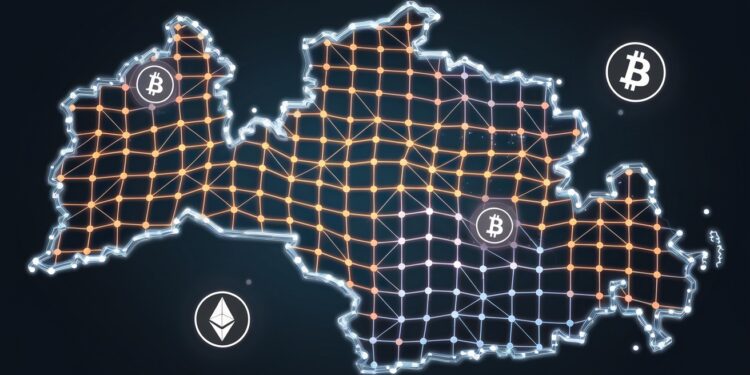In the heart of the Baltics, a small nation is quietly revolutionizing its economy by embracing the transformative power of blockchain technology. Latvia, often overshadowed by its larger European neighbors, has emerged as an unlikely leader in the crypto space, attracting global talent and investment with its progressive policies and vibrant startup ecosystem.
Latvia’s Crypto-Friendly Climate
Latvia’s rise as a blockchain hub can be attributed to its forward-thinking regulatory environment. The government has taken a proactive approach to fostering innovation, implementing crypto-friendly legislation that provides clarity and security for businesses operating in the digital asset space.
Latvia has created a welcoming and stable framework for blockchain companies, offering them the legal certainty they need to thrive.
– Inga Palīte, Ministry of Economics
This supportive stance has not gone unnoticed, as a growing number of international blockchain startups are choosing to set up shop in Latvia. The influx of crypto businesses is injecting new life into the nation’s economy, creating jobs and driving technological advancement across various sectors.
Nurturing a Thriving Blockchain Ecosystem
Latvia’s success in the blockchain space can also be attributed to its vibrant startup culture and highly skilled workforce. The country boasts a deep pool of tech talent, with a particular emphasis on software development and IT services.
To further cultivate this talent, Latvia has invested heavily in blockchain education and research. Universities across the country now offer courses and degree programs focused on distributed ledger technologies, ensuring a steady supply of qualified professionals to meet the growing demand.
By nurturing a new generation of blockchain experts, Latvia is positioning itself as a global leader in the development and application of this transformative technology.
– Kaspars Osis, Riga Technical University
Pioneering Real-World Blockchain Applications
Latvia’s embrace of blockchain extends beyond the crypto industry, as the technology finds its way into various sectors of the economy. From healthcare to logistics, Latvian companies are exploring innovative use cases that showcase the practical benefits of decentralized systems.
- Healthcare: Latvian startups are leveraging blockchain to securely store and share patient data, improving the efficiency and privacy of medical records.
- Supply Chain Management: Blockchain-based solutions are being implemented to enhance transparency and traceability in logistics, reducing costs and minimizing fraud.
- Digital Identity: Latvia is exploring the use of blockchain for secure digital identity management, streamlining access to government services and financial products.
As these real-world applications gain traction, Latvia is demonstrating the transformative potential of blockchain technology across a wide range of industries.
The Future of Blockchain in Latvia
Latvia’s early adoption of blockchain technology has positioned the country as a frontrunner in the global race to shape the future of digital finance. As the crypto ecosystem continues to evolve, Latvia is poised to play a pivotal role in driving innovation and setting the standard for blockchain adoption in Europe and beyond.
Latvia’s forward-thinking approach to blockchain regulation and its thriving startup scene have created the perfect storm for innovation in the crypto space. The world is watching as this small Baltic nation leads the charge into the future of finance.
– Jānis Ozols, Latvian Blockchain Association
With its crypto-friendly climate, skilled workforce, and pioneering spirit, Latvia is well on its way to becoming a global blockchain powerhouse. As the technology continues to transform industries and reshape economies, this small Baltic nation stands ready to leave its mark on the digital landscape.








